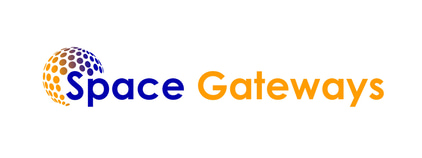Social Media Hubs: Examining Morality and Grace
Social media hubs have fundamentally transformed the landscape of communication in the contemporary world. Platforms such as Facebook, Twitter, Instagram, and LinkedIn have become essential tools for facilitating real-time interactions among individuals, regardless of geographical boundaries.
1/11/20255 min read


The Role of Social Media in Modern Communication
Social media hubs have fundamentally transformed the landscape of communication in the contemporary world. Platforms such as Facebook, Twitter, Instagram, and LinkedIn have become essential tools for facilitating real-time interactions among individuals, regardless of geographical boundaries. These platforms provide users with the ability to connect instantly, share thoughts, and exchange information, fostering a sense of community that transcends physical distance. In this context, social media acts as a catalyst for connection, enabling the formation of both personal and professional relationships on a global scale.
The significance of these digital platforms extends beyond mere connectivity; they have also revolutionized the dissemination of information. Individuals and organizations can now share news, updates, and creative content with a vast audience, often bypassing traditional media outlets. This democratization of information allows for diverse perspectives and voices to be heard, empowering users to participate in broader conversations about social, political, and economic issues. As a result, social media has played a crucial role in various movements and campaigns, driving social change and public discourse.
However, the dual nature of social media cannot be overlooked. While it offers numerous advantages, such as enhanced communication and the rapid spread of information, it also presents challenges. Miscommunication, misinformation, and online conflicts are prevalent issues that can arise within these platforms. The instantaneous nature of social media often leads to misunderstandings, where messages can be misinterpreted or taken out of context. Additionally, the anonymity offered by some platforms can exacerbate conflicts, leading to negative interactions among users.
In light of these dynamics, it is essential to recognize the profound impact social media has on modern communication. As both a powerful tool for connection and a potential source of conflict, understanding the complexities of social media hubs is crucial for navigating the digital communication landscape effectively.
Morality in the Digital Age
As social media continues to permeate every aspect of our lives, the ethical implications of online interactions have come to the forefront of public discourse. In this digital landscape, what constitutes moral behavior has become increasingly complex, raising questions regarding our responsibilities as users. The actions we take and the content we share on these platforms can have significant repercussions, not only for ourselves but also for society at large.
One of the most pressing issues is cyberbullying, a phenomenon that has escalated with the rise of social networks. This form of harassment affects individuals, particularly adolescents, leading to severe psychological impacts and undermining the principles of empathy and respect. An ethical approach to social media requires users to foster an environment that discourages harmful behavior while promoting kindness and understanding. The anonymity provided by online platforms can often lead users to act in ways they might not in face-to-face interactions, prompting a necessary reflection on what it means to behave morally in a digital context.
Additionally, misinformation has become rampant across various social media channels, challenging the integrity of communication in the age of information technology. The responsibility to verify and disseminate accurate information falls not only on content creators but also on consumers. Engaging thoughtfully with the material we encounter online is crucial for preserving the integrity of public discourse. The implications of unchecked misinformation highlight the need for a collective commitment to truthfulness and accountability within the social media community.
Studies, such as those highlighted in 'The Social Dilemma,' emphasize the profound impact social media has on human behavior and societal values. These findings illustrate how our engagement with digital platforms reflects broader ethical considerations, prompting us to examine issues of personal integrity. Ultimately, navigating morality in the digital age requires not just individual reflection, but also a concerted effort to shape an online culture that values ethical behavior and promotes a more compassionate community.
The Concept of Grace in Online Interactions
The concept of grace within online interactions serves as a powerful tool that can foster a respectful and considerate atmosphere in social media communities. In a virtual world often characterized by harsh commentary and divisive rhetoric, cultivating grace—demonstrated through kindness, empathy, and understanding—becomes essential for promoting healthier relationships among users. Graceful online engagements encourage constructive dialogue and create a space for diverse perspectives, allowing for meaningful exchanges that extend beyond mere arguments.
One practical example of grace in action is the widespread use of positivity campaigns on various platforms. These initiatives often encourage users to share uplifting messages, celebrate achievements, and practice empathy towards others' situations. Such movements aim to counterbalance the negativity that can pervade social media, demonstrating that even in an increasingly contentious environment, it is possible to foster a culture of support and compassion. By participating in these campaigns, individuals set a precedent for others to follow, thereby promoting a communal norm that values grace over discord.
Furthermore, grace can manifest in how users respond to criticism or disagreement. Instead of retaliating with hostility, individuals can approach contentious discussions with an open mind and a calm demeanor. This approach not only diffuses tension but also exemplifies the notion that one can engage in respectful discourse while still standing firm in their beliefs. When users model grace in their online interactions, they contribute to a ripple effect, inspiring others to adopt similar attitudes. Consequently, this nurturing of grace has the potential to mitigate the often confrontational nature of social media debates and pave the way for constructive exchanges.
Navigating Ethical Dilemmas on Social Media
As digital communication continues to evolve, users are frequently confronted with various ethical dilemmas on social media platforms. To navigate these complex social dynamics effectively, it is essential to adopt practical strategies that promote mindful engagement. One of the first steps involves developing self-awareness regarding one’s online actions and the potential implications they may carry. This self-reflection enables users to recognize how their behavior can influence others and emphasizes the importance of maintaining a respectful tone in discussions.
Critical thinking is another vital skill that users should cultivate when engaging on social media. This involves analyzing the information before sharing it and considering its accuracy and intent. Users should question the sources and motivations behind the content and evaluate whether sharing it contributes positively to the discourse or merely propagates misinformation. By fostering a culture of fact-checking and skepticism, the online community can reduce unnecessary conflict and misunderstandings, ultimately creating a more enlightening environment.
Moreover, open and respectful communication plays a crucial role in promoting ethical interactions online. Encouraging constructive dialogue and actively listening to differing viewpoints can lead to deeper understanding and stronger relationships among users. It is essential to recognize the diversity of opinions that coexist in digital spaces and approach discussions with an open mind. When disagreements arise, striving for empathy and de-escalation rather than escalation can help maintain a healthy online atmosphere.
Lastly, users should establish personal guidelines for their online engagement. These can include setting boundaries for interactions, such as avoiding impulsive responses to provocative content and practicing digital detox when needed. By consciously monitoring their online presence and adhering to these guidelines, users are more likely to contribute positively to the social media landscape, creating an environment characterized by grace and mutual respect.
